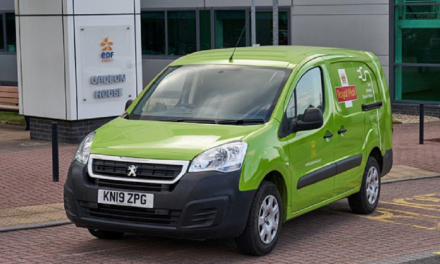
Bank of Ireland hopes for red letter days
Bank of Ireland has made a quiet start to its financial services joint venture with the UK Post Office by trialling its first product this month – a personal loan available at 200 branches in the British midlands.
But there is no doubting its ambitions.
Mike Soden, Bank of Ireland's chief executive, confidently predicts the collaboration will provide the "missing link" in the bank's strategy in the UK, where it has made a couple of abortive moves for acquisitions, first with Alliance & Leicester and then with Abbey National.
Mr Soden believes the joint venture, which was announced in October and in which the bank is investing £125m, "is an alternative to buying another bank".
Flipping through a briefing note on the deal, he finds it hard to hide his enthusiasm. "You know what would be a great product to sell, looking at that?" he says, pointing out a statistic that suggests that 91 per cent of all motor vehicle licences in the UK are sold by the Post Office. "Car insurance," he says. Mr Soden adds the deal will build on the bank's profile in what he calls its "second home market".
The UK – which includes its Northern Ireland business – generated profits of E352m (£243m) in the year to March 2003, or 29 per cent of the total. It is easy to forget, Mr Soden says, that the bank sells twice as many mortgages in the UK as it does in Ireland, yet has a 2 per cent market share against a 20 per cent share in Ireland. The Post Office, with 17,000 branches and one of the most sophisticated IT infrastructures, provides Bank of Ireland with a ready made distribution network.
Some of the larger UK banks were concerned such a link could cannibalise their existing client base. Mr Soden believes Bank of Ireland's branch presence – 200 outlets if the Bristol & West mortgage operation is included – is just too small.
"There is no fear of cannibalisation. Much larger banks are successfully selling branded products through non-bank retail networks. The joint venture will sit alongside our existing UK businesses as a new and separate revenue stream."
Seamus Murphy, analyst at Merrion Stockbrokers, points out that Tesco Personal Finance, the joint venture with Royal Bank of Scotland, took several years before it started to turn a profit. Mr Soden concedes that the joint venture will "have a limited impact on our March 2004 numbers, other than our investment".
However, he says: "The upside has got to be in multiples [of the value of the original investment]."
The business case is clear. Bank of Ireland generates surplus capital but because of its already dominant position in the Irish market, it is restricted from growing by acquisition.
The Post Office deal is a chance to acquire a foothold in a much larger market at minimal cost. It is estimated that 9 out of 10 people in the UK live within a mile of a branch. The entire network has around 29m customers and 42m weekly visits. But, like other state-run postal companies in Europe, its traditional mail delivery business is under pressure from new entrants following deregulation.
More specifically, social security benefit cheques are no longer paid by the Post Office but directly into the claimant's bank account, under new rules introduced by the Department for Work and Pensions.
It is hoped that the joint venture, by providing post offices and operators of sub-post offices with extra income, will go some way to plug the shortfall created by the benefit changes.
Mr Soden is clearly counting on the energy and aptitude of the post office "entrepreneurs" as he calls them. "They are looking for new products to sell. And all the research would suggest there is a huge demand to use these outlets." Much of the bank's investment will be used to cover the cost of training post office staff and setting up the call centre to handle the sales. The Post Office, he says, is one of the largest generators of savings.
"If we can produce a simple, easily-understood savings product in that market, we believe there will be huge opportunities."
Bank of Ireland has an existing link with the Post Office, First Rate Travel Services, which is now the second-largest provider of retail foreign exchange in the UK, making profits of GBP37m last year. "Here is a further opportunity. And we're not giving surplus capital back to shareholders but finding a good return for the shareholders."













